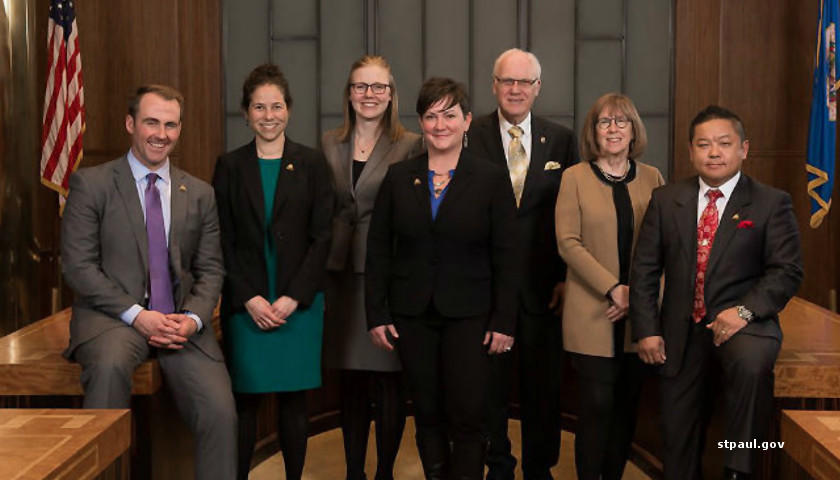After months of research, the St. Paul City Council is now considering a proposal to introduce a city-wide $15 minimum wage requirement.
According to the City Council’s website, local officials tasked an organization known as Citizens United with launching an independent Minimum Wage Study Committee, and its findings were presented Wednesday night.
“We are grateful for the time, expertise, and thoughtful debate that the Study Committee brought to this Task Force. These recommendations will be the basis that we use for a municipal minimum wage ordinance in St. Paul,” Councilmember Chris Tolbert said in a press release.
The Study Committee, which met fourteen times over the summer, was asked to evaluate what “an appropriate minimum wage rate would be,” what appropriate “exemptions” should be made,” if a “tip penalty” should be applied, and what a reasonable timeline for implementation would look like.
The City Council heard the results of the study at a Wednesday night public policy session, which protesters in favor of the proposal attended.
“15 Now Minnesota” planned to “pack the room” Wednesday night, promoting a platform of a “$15 minimum wage for all workers” with “no exemptions.”
“The task force voted with 77 percent support in favor of a $15 minimum wage with no tip penalty, confirming the policy that workers have been championing for years is right for Saint Paul,” the group claims on its website. “We’re closer than ever to winning $15, but we need to make sure it’s the strongest possible policy.”
The group is pushing for a policy that doesn’t including any “carve-outs that leave workers behind,” plus a “quick phase-in” process, and a “well-funded enforcement to defend the wage.”
St. Paul Mayor Melvin Carter said he plans to sign the proposal into law if passed, saying the issue is “already decided.”
“We are going to raise the minimum wage in St. Paul. We are going to raise the minimum wage to $15 an hour,” he said in April.
Other cities, such as Seattle, have adopted a $15 minimum-wage ordinance, but are already struggling to keep it maintained. A 2017 study conducted by the University of Washington revealed that businesses have cut their payrolls, are delaying new hiring, and are letting workers go.
The study found that the average worker actually lost $125 month because of the policy, estimating that the financial damages caused to low-wage workers outweighed the benefits by a ratio of three to one.
Economist David Autor from the Massachusetts Institute of Technology told The Washington Post that he finds the study “very credible.”
“If I were a Seattle lawmaker, I would be thinking hard about the $15 an hour phase-in,” he said.
– – –
Anthony Gockowski is managing editor of The Minnesota Sun. Follow Anthony on Twitter. Email tips to [email protected].




